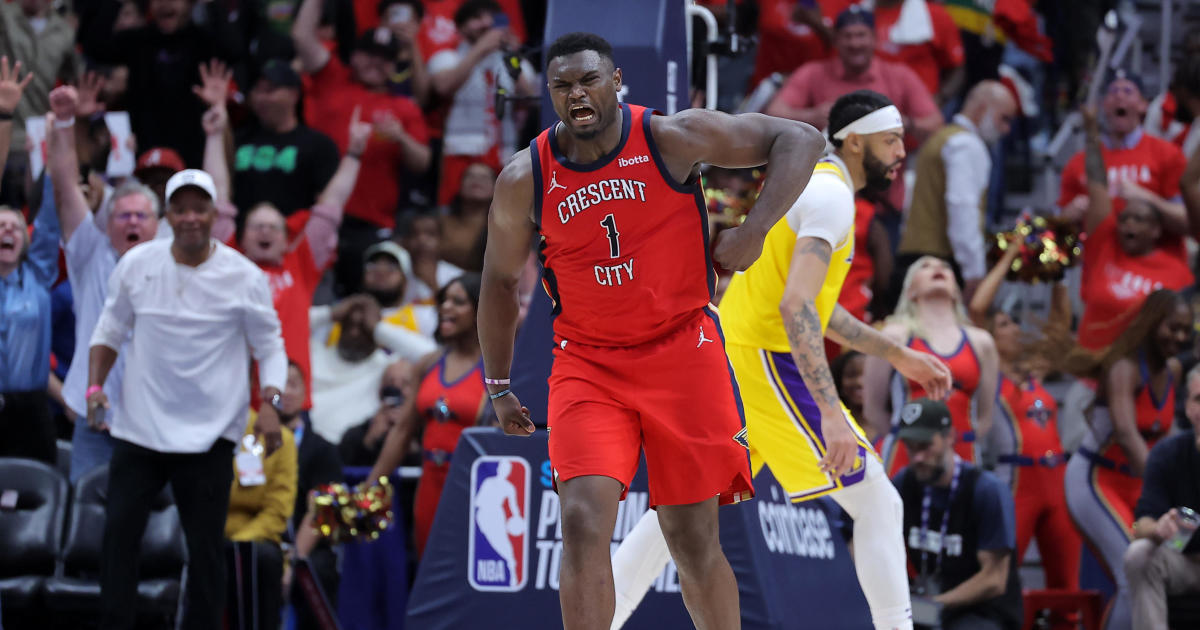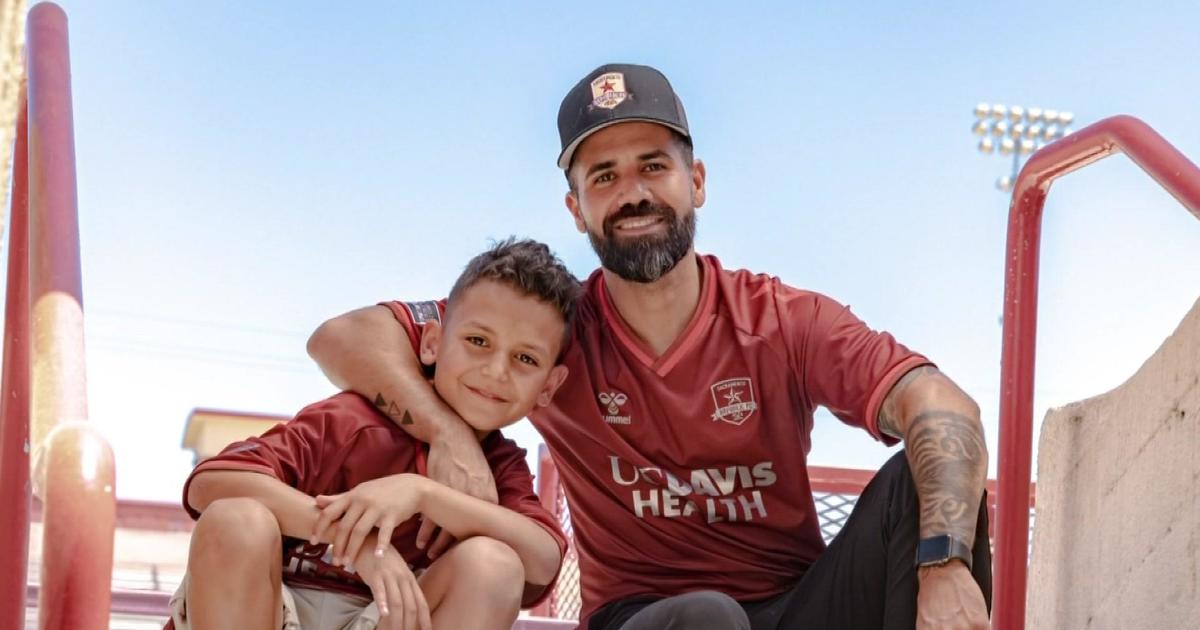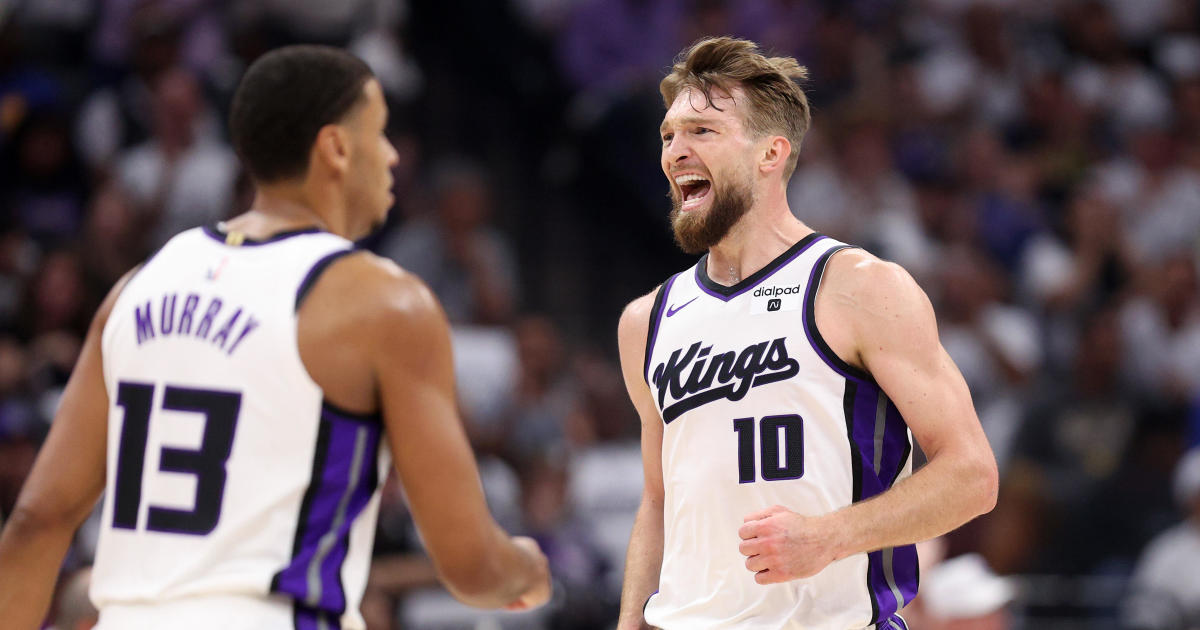Keidel: NBA Needs To Raise Age Restriction
By Jason Keidel
» More Columns
With all the pyrotechnic issues raining on sports right now - testing America's soul on hot-button topics like racism, homophobia, free speech - the final social trial balloon takes on age and wage.
As March Madness knocks - making its yearly rounds with our hearts, minds, and wallets - we blow the dust off our remotes and recall a time when we actually knew the players on our television. Sadly, today's college basketball is more of a financial endeavor than a romantic experience, with fight songs and pompoms replaced by cheesy phrases like "Bracketology."
But it wasn't always so.
Those of my vintage remember a time when the Big East was a hardwood monolith. One magical season they sent three teams - St. John's, Villanova, and Georgetown - to the Final Four, with the epic upset of the Hoyas capping a surreal season for college basketball.
Patrick Ewing actually had a college career - an absurd notion today, as anyone with a possibility and a pulse now jumps to the NBA the moment an agent flashes a little leg.
But the mass exodus from senior prom to rookie camp started sometime in the late-'90s and thus the league hasn't been the same since. While it sounds so glamorous and amorous to live the American Dream, it rarely worked out for all involved.
The player, college, and NBA have suffered greatly in quality of play and players. And for every Kobe Bryant and Kevin Garnett there has been a conga line of lost causes, teens who toiled in Europe or Asia or worse once their hoop dreams melted into memory.
John Calipari ushered a beast of a ball club to the tournament, led by Michael Kidd-Gilchrist and Anthony Davis. Imagine if they'd stayed in school. They'd be about 33-0 right now and the hands-down favorite to win this year and every year they stuck together in Kentucky.
More than that, we would have a team with whom we would identify and invest, even if rooting against them. And the NCAA would have its brand back, a draw, and exponentially more interest from the public. Right now we essentially snooze through the season and set our alarms for mid-March.
If memory serves, Tim Duncan is the last four-year titan of college basketball. No doubt Duncan, the best power forward in NBA history, would have been great no matter the length of his stay at Wake Forest. But the extra seasons of seasoning surely made him a more polished player when San Antonio drafted him.
Can you name one starting five in college basketball? Heck, can you name four? Three? We have an amalgam of one-and-done studs flanked by role players who stayed in school largely because they'd barely qualify for the D-League.
We often lose the line between morality and legality. The advocates of the AAU-NBA shuttle say high school kids have the right to play for pay as soon as they get their diploma. If they can drive, vote, serve in the military, die in the military, and sire children then surely they have the right to earn a living.
All true. But playing in the NBA is a privilege, not a right. An employer may set whatever standards they like for employment as long as said standards are legal. My inner libertarian is inclined to defend the young man from a single-parent home who just wants to buy mom a modest home. The future may be fruitful, but it's equally fleeting. So get the money while you can.
The NFL makes prospects languish for three years after high school before they may enter the draft, and that seems to be working out rather well. The NBA is a frathouse by comparison, only requiring a one-year transition from high school to old school, with college a de facto pit stop, a rather specious arrangement that benefits everyone but the player.
Then again, an 18-year-old isn't nearly as prepared physically or metaphysically to lead the life of a hardwood gypsy. You're asking a kid who a few weeks ago was sleeping under mom's warm roof, eating her ham and eggs, enjoying her laundry service and life advice, to now live out of a suitcase with a suddenly swollen checking account, about seven-digits deep, go from playing 35 games to 82 games, stay out of trouble, and harness his hormones.
Such is the accidental benefit of the NFL's requirements. You get more man than boy as a rookie. Fewer men seem to fall through the cracks, while the NBA is festooned with 23-year-old failures and flunkies who may otherwise have made it had they stayed in school.
LeBron James made it look so facile we now assume he's the typical high school baller, when in fact a man of LeBron's talent, temerity, and maturity are a once-a-century scientific miracle. Ignore the top of the top-tiers and you'll find that the Moses Malone path to stardom is an anomaly.
Staying in school is almost always the right choice. But you're asking people to make life-changing choices when they've never had to make even moderate decisions other than which school to "attend."
Then again, it will be hard to summon much sympathy from Americans who suffer in factories and cubicles and construction sites just to barely put pot roast on the table. Try telling the family who must decide between dinner and the movie - because they can't afford both - to feel sorry for the millionaire who skipped school too early.
At the end of the day, we're talking about ten kids a year who must choose between a university and the universe of adulthood and autonomy of NBA life. Of course, if the NCAA would just man-up and pay a stipend for the Jabari Parker prodigies, we may actually have a few college careers in the future.
But why do that? It makes way too much sense for the NCAA, a colossal bureaucracy that chews up players and spits out humans, without any regard for their humanity.
Twitter: @JasonKeidel
Jason writes a weekly column for CBS Local Sports. He is a native New Yorker, sans the elitist sensibilities, and believes there's a world west of the Hudson River. A Yankees devotee and Steelers groupie, he has been scouring the forest of fertile NYC sports sections since the 1970s. He has written over 500 columns for WFAN/CBS NY, and also worked as a freelance writer for Sports Illustrated and Newsday subsidiary amNew York. He made his bones as a boxing writer, occasionally covering fights in Las Vegas, Atlantic City, but mostly inside Madison Square Garden.
You May Also Be Interested In These Stories



